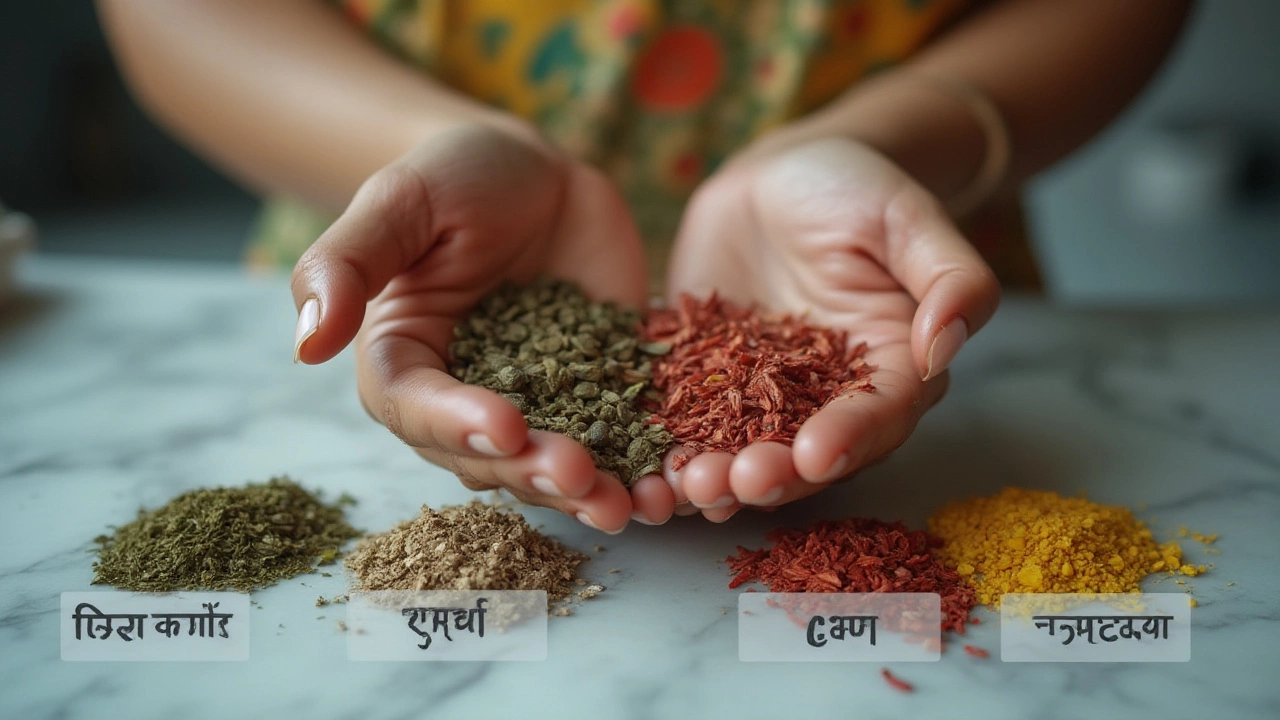Picture this: you swap your morning coffee for herbal tea, feeling pretty good about it. But not all herbs are as kind to your kidneys as you’d guess. It’s not just prescription meds or junk food that can do damage; some familiar plants pack a punch your kidneys simply can’t handle—especially if you already have kidney issues. The real kicker? Most people don’t even realize these natural supplements can be risky.
The Hidden Dangers of Popular Herbs
Walk into any pharmacy or wellness store, and you’ll see shelves overflowing with herbal teas, capsules, and tinctures promising everything from sharper memory to glowing skin. The problem is, some of the most popular herbs floating around can put a heavy workload on your kidneys—or worse.
One classic example is aristolochia, found in Chinese herbal remedies. It’s notorious for causing kidney failure and even cancer. In fact, Belgium saw an outbreak of kidney disease tied to weight loss pills containing this herb in the 1990s, prompting health authorities to ban it. While it’s less common now, it can still sneak into imported traditional medicine products.
Another big offender? Licorice root. A lot of people reach for licorice herbal teas to soothe a cough or help digestion. But glycyrrhizin, a compound in licorice, can raise blood pressure and drop potassium levels dangerously low. Too much licorice can trigger acute kidney problems, especially in folks with pre-existing conditions.
Let’s not forget about herbs like parsley or dandelion. Sure, they’re healthy in cooking, but concentrated extracts and supplements market them as "kidney cleansers." Most people do fine with small amounts, yet those huge doses designed for detoxing can lead to dehydration and put stress on your kidneys.
Then there’s St. John’s Wort. Usually advertised as a natural antidepressant, it makes things tricky by interacting poorly with immunosuppressants and other drugs prescribed after a kidney transplant. It doesn’t directly damage the kidneys, but it can make life harder for people with kidney issues by interfering with essential medications.
Here’s a snapshot of some commonly used herbs with known kidney risks:
| Herb Name | Common Uses | Risks for Kidneys |
|---|---|---|
| Aristolochia | Traditional Chinese medicine | Kidney failure, cancers |
| Licorice Root | Tea, cough remedies | High BP, low potassium |
| Parsley Extract | "Detox" teas | Dehydration, stress |
| Dandelion | Cleansing, diuretic teas | Dehydration |
| St. John’s Wort | Depression, sleep | Drug interactions |
So, herbal doesn’t always mean harmless. Knowing what’s on those labels and doing a little research can save your kidneys a lot of trouble.
How Herbs Affect the Kidneys
Your kidneys work as filters, clearing out harmful substances from your blood—nature’s own detox machines. But they’re delicate. If you shovel too many plant compounds at them, some are hard for your body to break down. Over time, these can pile up and damage those tiny filters, called nephrons, reducing kidney function.
Certain herbs act like diuretics, meaning they help the body expel water and salt. While this seems helpful if you’re bloated, excess water loss can lead to dehydration, and your kidneys have to work even harder to balance fluid and minerals. Diuretics found in plants like dandelion and juniper berries can tip this balance too far.
Others, like high doses of turmeric or rhubarb root, are high in oxalates. Oxalates are notorious for forming kidney stones—small, sharp rocks that cause searing pain when they pass. If you’re prone to stones, adding lots of these herbs to your daily routine could put you on a fast track to a hospital visit.
Then there are herbs with direct toxic effects. Aristolochia (which we mentioned before) actually scars kidney tissue. Star fruit is another surprising culprit, especially in Southeast Asia. It contains neurotoxins and oxalates, and many people with kidney disease end up in the ER after snacking on just a few slices.
Herbal supplements often fly under the radar in studies and regulation, which lets these risks slip by unnoticed—until people end up with unexplained kidney damage. That’s why doctors now ask about supplements during check-ups, not just prescription drugs.

Herbs You Should Definitely Avoid If You Have Kidney Problems
If you’ve been diagnosed with chronic kidney disease (CKD), or if you’ve had kidney stones before, the list of herbs to avoid gets longer and more serious. You can’t rely on “natural means safe” here.
Here are some major red flags to watch for:
- Aristolochia: Any supplement with this listed in the ingredients—even under names like “birthwort” or “Dutchman’s pipe”—should go straight in the trash. It’s outlawed in multiple countries, but still makes its way into some products, especially on online marketplaces.
- Lobelia: Used for asthma or quitting smoking, this one can slow your breathing and strain kidneys, sometimes fatally in large doses.
- Pennyroyal: Popular in "detox" or menstrual teas. Even a small amount can cause kidney and liver failure.
- Rhubarb root: Great for baking pies, but the concentrated root extract is loaded with oxalates, which can trigger kidney stones and even kidney shutdown in people who are vulnerable.
- Comfrey: Sometimes drunk as a tea for digestive health or joint pain, but contains pyrrolizidine alkaloids that can seriously scar both liver and kidney tissue.
- Horsetail: Sold as a diuretic or “hair and nail” booster, this herb can make you lose too much potassium, which leads to dangerous muscle cramps and kidney strain, especially in people with low kidney function.
If you’re taking an herbal blend or a “cleansing” tea, check every ingredient. Many contain hidden herbs with a sketchy track record. And if your kidney doctor says no—skip it, no matter what the packaging promises.
Tips for Safely Using Herbs If You’re Worried About Your Kidneys
Loving herbal tea or natural remedies doesn’t mean you need to give them up forever. But the key is moderation and a healthy dose of skepticism. Here’s how to keep your kidneys out of trouble:
- Only buy supplements from reputable brands that share full, clear ingredient lists. No weird imports with mystery blends.
- Start small. If you’re introducing a new herb, begin with the smallest possible amount and see how you feel. Monitor for anything weird: swelling, fatigue, darker urine, or muscle cramps shouldn’t be ignored.
- If you already have a kidney problem—like diabetes or hypertension—check with your doctor or pharmacist before trying any new supplement. Even “kidney cleansing” teas can backfire.
- Never use herbal “cleanses” or “detoxes” for extended periods. They may promise quick results, but they put prolonged stress on your filtering system.
- If you notice any signs like nausea, frothy urine, or unexplained pain in your lower back after starting a new herb, stop immediately. These can be early signs of kidney problems.
- Remember, even common things like cinnamon and turmeric can be issues in massive doses. Cooking with them is fine for most people, but don’t megadose without medical supervision.
And here’s something direct: Most of the time, people don’t need extra herbs to “cleanse” their kidneys. Drinking enough water, limiting salt, and eating a variety of whole foods do much more than overhyped supplements ever will.

The Bottom Line: Nature’s Not Always Gentle
Herbs seem pretty safe when you catch the ads, but for your kidneys, a few can be just as risky as over-the-counter painkillers. Don’t let marketing convince you something is harmless just because it came from a plant. Stay informed, watch those labels, and remember—your kidneys are quietly working behind the scenes, keeping everything in check. Treat them kindly, and they’ll stick by you for the long run.

 Can You Choose a Baby’s Gender with IVF? Complete Guide
Can You Choose a Baby’s Gender with IVF? Complete Guide
 Kelly Clarkson's Rapid Weight Loss Journey: Secrets and Tips
Kelly Clarkson's Rapid Weight Loss Journey: Secrets and Tips
 Heart Surgery Life Expectancy: What to Expect After the Procedure
Heart Surgery Life Expectancy: What to Expect After the Procedure
 Boost Your Metabolism for Weight Loss After 60
Boost Your Metabolism for Weight Loss After 60
 Can You Get a Prescription Without Seeing a Doctor?
Can You Get a Prescription Without Seeing a Doctor?